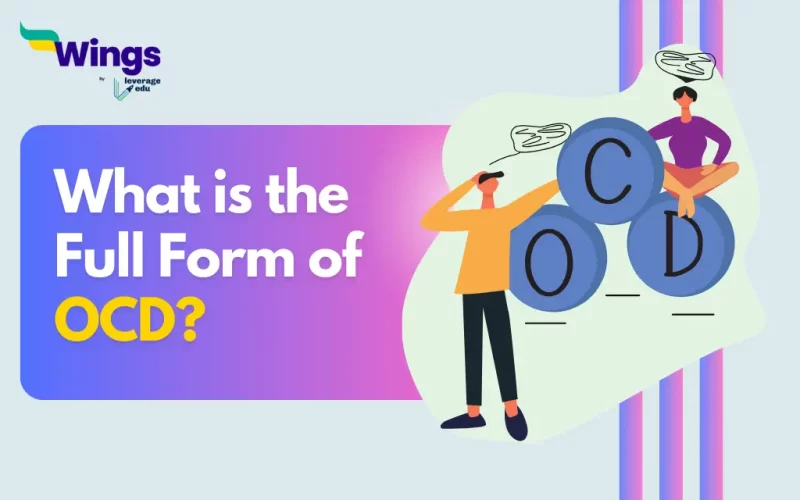The full form of OCD in the medical field is Obsessive-Compulsive Disorder. It is a mental health disorder characterised by persistent, invasive thoughts (obsessions) and repetitious behaviours (compulsions) performed in response to these thoughts. Furthermore, OCD interferes with people’s daily life as well as is time-consuming. Therefore, OCD Awareness Week is celebrated every year to educate people about OCD and remove the stigma around it. In 2024, the week will be observed from October 13 to October 19. As the week has already started, let’s learn more crucial details about OCD.
Table of Contents [show]
Types of OCD
Now that you know about the full form of OCD in the medical field, let us learn about its different types. OCD is an umbrella term that can manifest differently in each person. The four main types of Obsessive-Compulsive Disorder (OCD) are:
- Contamination OCD: This type revolves around the fear of dirt, germs, or contaminants. Individuals with this particular type of OCD tend to wash their hands excessively to avoid potential sources of contamination.
- Checking OCD: People with this type of OCD experience constant fears that something terrible will happen if certain actions are not repeatedly checked.
- Symmetry and Ordering OCD: This type is characterized by the need to organise things in a particular manner.
- Ruminations and intrusive thoughts OCD: It is characterized by persistent thoughts that are almost impossible to control. These thoughts can be violent in nature.
What is the Cause of OCD?
The exact cause of OCD is not fully understood, however:
- It is a result of a combination of genetic, neurological, behavioural, cognitive, and environmental factors.
- There is evidence to suggest that imbalances in neurotransmitters particularly serotonin have a role in the development of OCD.
- Additionally, a family history of the disorder may increase the likelihood of a person developing OCD.
- Stressful life events and trauma can also trigger or worsen symptoms in individuals.
Also Read: World Mental Health Day
What are the Major Symptoms of OCD?
OCD manifests through a variety of symptoms with obsessions and compulsions at the forefront. There are other symptoms like:
- Obsessions are unwanted and invasive thoughts, urges or images that induce substantial anxiety or distress.
- Common obsessions comprise fears of contamination, harming oneself or others, and a need for symmetry or order.
- On the other hand, compulsions are repetitive behaviours or mental acts performed to reduce the anxiety associated with the obsessions such as excessive handwashing, checking, counting, or repeating certain actions.
Also Read: How Can Schools Prioritize Mental Health
What are the Stages of OCD?
OCD does not necessarily progress in distinct stages, but the severity and impact of symptoms can vary over time.
- People with OCD often experience fluctuating levels of symptom severity.
- In some cases, the disorder may start in childhood or adolescence and persist into adulthood.
- The severity of symptoms can be influenced by factors such as stress, life changes, or other mental health conditions.
How to Celebrate OCD Awareness Week
OCD Awareness Week is an important time of the year, dedicated to teaching people around the world about Obsessive-Compulsive Disorder, also called OCD. Here are some meaningful ways to celebrate OCD Awareness Week with your children, friends, and family to help them become a part of this week:
- You can organize or attend awareness events and discussions with your loved ones.
- Another way is to share informative posts, videos, and tweets on your social media platforms.
- You can donate or volunteer at local organizations working towards mental health advocacy.
- The next way to celebrate OCD Awareness Week is to host a fundraiser to support OCD treatment programs.
Popular Full Forms
We hope this blog has helped you understand the full form of OCD in the medical field in English and everything related to it. If you want to know more, find the 300+ full forms list on our blog. In the world of short forms, you can rely on the Leverage Edu page to know about more full forms like this! Connect with us study abroad experts to achieve your international dream today!
 One app for all your study abroad needs
One app for all your study abroad needs















 45,000+ students trusted us with their dreams. Take the first step today!
45,000+ students trusted us with their dreams. Take the first step today!
